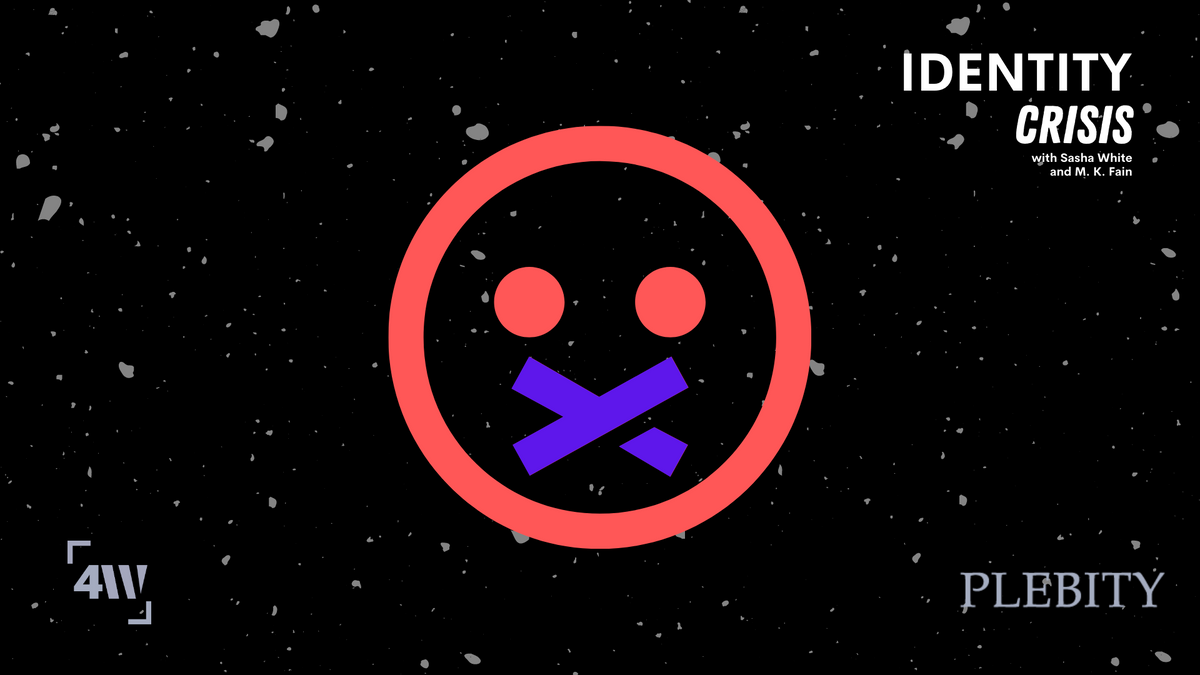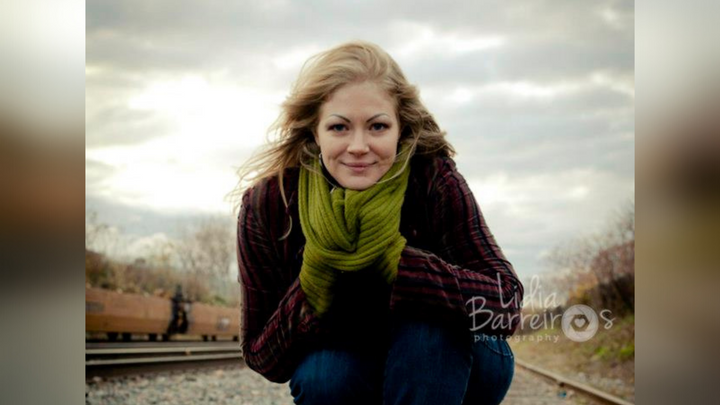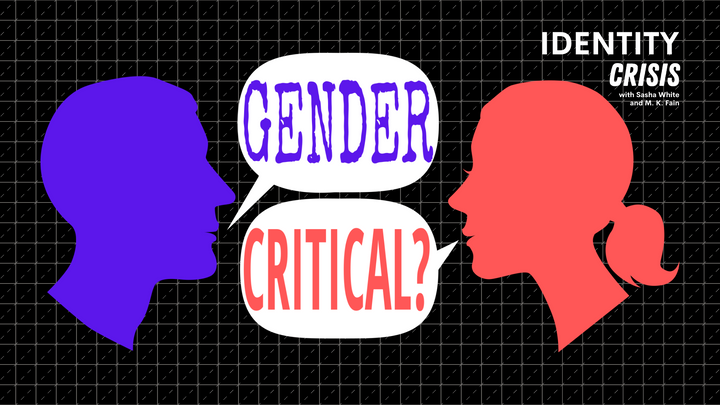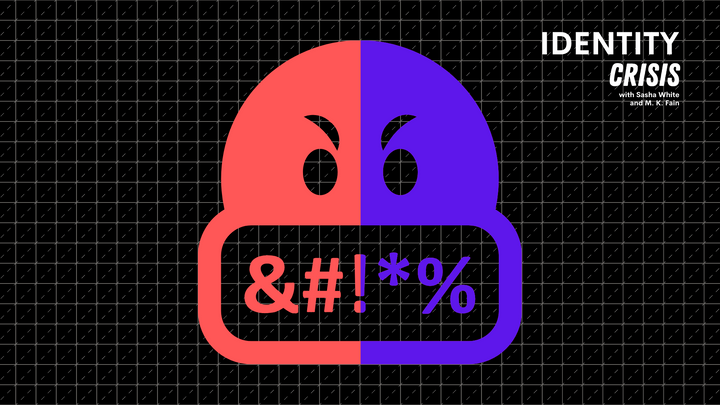Are You Being Silenced, or Silent?
Masih Alinejad, Sediqa Sherzai, and Miriam Rodriguez experienced genuine threats to their lives and families for speaking out. They did it anyway.

"Identity Crisis" is a new weekly column and podcast for young people struggling with the modern orthodoxy of gender identity ideology—developed in collaboration between Plebity and 4W by M. K. Fain and Sasha White. Each week, we will answer one or two of your questions, both as a running column here on 4W, and in the form of a video on YouTube.
To submit a question, email us at: [email protected]. We may publish your question in full, so be sure to leave out or change any identifying details if you would like to remain anonymous. Or, specify that your question is private and you would rather we discuss it in a general way.
Masih Alinejad is an Iranian feminist and human rights activist best known for founding the “My Stealthy Freedom” campaign against compulsory hijab in Iran. For her activism, she has been imprisoned, exiled, and her family has been held hostage by the Ayatollah’s regime. She was first jailed for speaking out against the government at the age of 18, when she was working as a journalist. Since then, her feminist campaigns have made her and her family a constant target. In 2019, her brother was captured by the regime, dragged out of his apartment, and held in a “notorious” prison for interrogation. His only crime was his relation to Masih.
Sediqa Sherzai runs a feminist radio station in northern Afghanistan where she reaches hundreds of thousands of women, many of whom are illiterate and forced to stay at home, with messages of female liberation. She questions age-old traditions, like the forced marriage of young girls, and appears to have had an enormous impact on spreading feminists consciousness in northern Afghanistan, where only 15 percent of women can read or write. In 2015, the Taliban overtook the radio station and set it on fire. They built it back up again and got the message back on the air. Now, they keep a shotgun in the control room.
Miriam Rodríguez was a mother in Mexico who hunted down the members of a cartel who kidnapped and murdered her daughter. In a community where everyone was terrified to speak out against the cartel, she not only spoke out, but took down 10 of them herself when even the police couldn’t (or wouldn’t) help. “They will kill me in the end. Of that I have no doubt,” she is quoted as saying. She was right. On International Mother’s Day in 2017, she was shot and killed.
These are women who have faced silencing tactics very few of us can genuinely say we understand. And yet, as long as they lived, they were not silent.
People often tell me I am “brave” for speaking out on gender identity. I don’t think I’m brave. I had a choice to make: speak what I believed, or choose to be silent. Speaking out seemed easier for me than living a life of fear in the shadows. I knew the choice I made would have consequences. I had to leave my home (twice), lost nearly every friend I had at the time, lost jobs, lost volunteer positions, was stalked and assaulted in public, and probably will never work in many of the fields I previously pursued again. But, as one Canadian psychologist put it, this was still “the path of least resistance” for me.
Yes, I faced an onslaught of external resistance. Yet, the idea of having to live the entire rest of my life in a lie felt even more unfathomable.
But this was only true because the external resistance I faced did not pose an existential threat. I could afford to lose my job — I had been making an insane salary as a software engineer for about nine months at that point, and aggressively squirreled away savings “just in case.” Growing up in poverty and experiencing it for most of my adulthood until I got that job had made me obsessive about preparing for the worst even when I had the best. I don’t have children I needed to protect. I don’t have a chronic health condition I needed my health insurance for. I knew I had six months of expenses (if I lived very frugally) set aside, and I was confident I would figure something out in that time. Although I received death threats, I knew they were just online trolling. Ultimately, I did not feel my life and safety was at risk for speaking out.
Although I was not silent, I was “silenced” in some ways. My account was banned from Medium after I had written hundreds of articles on the platform — nearly one a day for an entire year. I was deplatformed from speaking at two different conferences I had been invited to. I was kicked out of slack groups and not allowed to defend myself where I was being slandered the most.
Being “silenced” is not a one-time event, or even a state of being. You can be silenced in a myriad ways, across a variety of platforms. To be silenced, as I see it, is to lack ultimate control over your ability to speak. When your account is banned, content deleted, existence memory-holed, that is “being silenced”. And yet, you may not be silent even as you are being silenced. You can scream into the void, on the street corner to anyone who will listen, on an obscure platform where no one will read your words, about what is happening to you — you are not being silent.
When many people speak of “being silenced” today, they mean they experience enough fear of speaking out that it convinces them to be silent. But, ultimately, they are the one who is silencing themselves.
Most of us do not face existential threats if we speak out. Many people will lose friends, some believe they will lose family members. Most will be ostracized to some degree from their community, whether it’s social, professional, or an activist community. Some will lose positions of influence. And some, like Sasha and I, will lose jobs.
These things are not minor. Although I am doing well now, two years out of my “cancellation,” the immediate aftermath felt devastating. I felt alone, scared, fragile, and vulnerable. My mental health was barely hanging on by a thread. I am not saying the choice is an easy one for most people, even for those with relatively little at risk.
Claiming to be silenced puts the responsibility on an outside party for your own lack of voice. In some cases, this is appropriate. But for most of us, we are choosing to be silent because we have weighed the risks and benefits of silence and actively chosen silence. This is a deeply personal decision, and I do not claim to understand the forces at play in any one individual’s life that may tip the scales for them one way or the other. Sometimes, silence is the most strategic decision in a moment. Choosing silence in the short-term can allow you to reach a position from which your voice will hold more weight, be heard louder, or be harder to ultimately actually silence.
But, sometimes, we tell ourselves we are being silenced to avoid feeling responsible for our silence.
I have a hard time considering myself brave when I think of women like Masih Alinejad, Sediqa Sherzai, and Miriam Rodriguez. Would I let my family rot in prison for my activism? Probably not. Would I keep speaking even after terrorists set fire to my studio? I don't think so. Would I face down members of the most terrifying gang in country to avenge my daughter's death? To be honest, I think I would have collapsed from the pain of loss long before getting to that point. I wish I could say differently and, I suppose, we never really know what we will do until we are forced to the brink ourselves, but I think I would probably be silent in those cases.
What makes these women different? What prevents them from silencing themselves even when they have forces more powerful than I can imagine trying to silence them?
I don't have the answers. All I know is that these women have shown me that to be afraid is not to be silenced. They teach me that we do have choices, even when the choice we are faced with seems unimaginable. They provide an example of how to not be silent, even when you are being silenced.
You can listen to "Identity Crisis" on Spotify, Google Podcasts, or wherever you get your podcasts. Subscribe to updates on Identity Crisis here: identitycrisis.xyz/get-updates
Enter your email below to sign in or become a 4W member and join the conversation.
(Already did this? Try refreshing the page!)





Comments